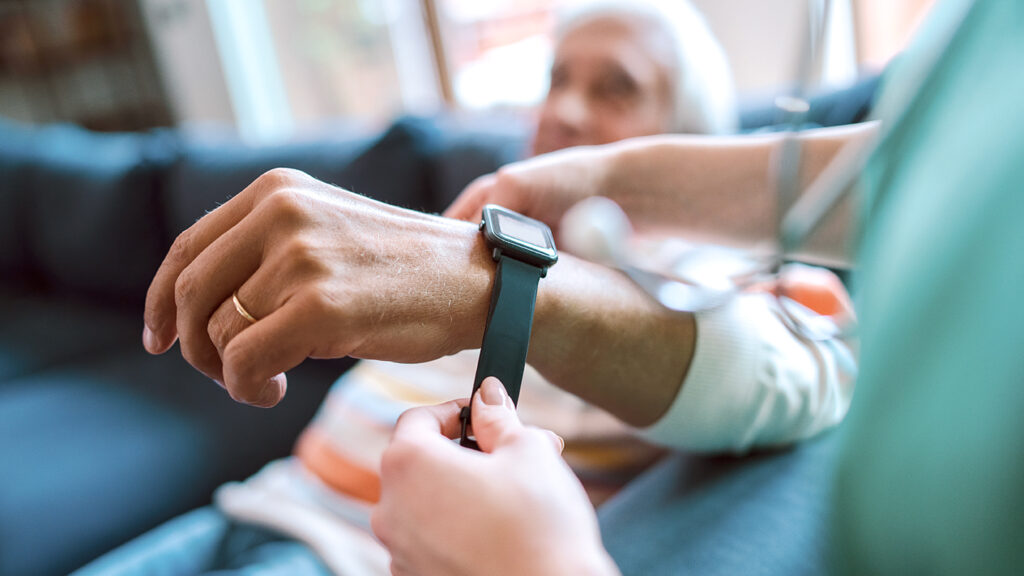
An overwhelming majority of those who use health tracking wearables — 91% — say they would either be “somewhat” or “extremely” interested in sharing their personal health data with clinicians, a new study shows.
Personal fitness trackers have become increasingly sophisticated in their ability to record data and offer diagnostics, in part due to the growth of artificial intelligence capabilities.
Although the survey report, written by the consulting firm Software Advice, didn’t specify how many of the 876 respondents were older adults, other studies have shown that use of wearables has grown tremendously over the past decade among older adults.
One study found that “as little as 7% of older adults owned an activity tracker” in 2014; that figure has at least doubled, to more than 14%, over the past year, a recent study stated.
In general, however, the need for increased fitness, and improved tracking, is very important for older adults, as studies continue to show that even moderate or adjusted fitness levels can greatly reduce health risks.
Wearables increasingly are being targeted to older adults, with uses to track specific conditions older adults have, such as Parkinson’s.
Some senior living operators even are building out “smart gym” systems for residents to use, such as the facility in Blakeford’s Green Hills campus in Nashville, TN.
According to the Software Advice report, more than 9 million users added use of a FitBit in 2022, and growth among other devices also has been robust.
Not only were more people wanting to share their wearable-derived health data with physicians, but 87% of patients said they were more likely to use a doctor, or prefer a clinical team, that took such data into consideration, compared with one who did not, the report showed.
Eighty-two percent of the Software Advice survey respondents said they were hoping to “take charge of their own health.”


